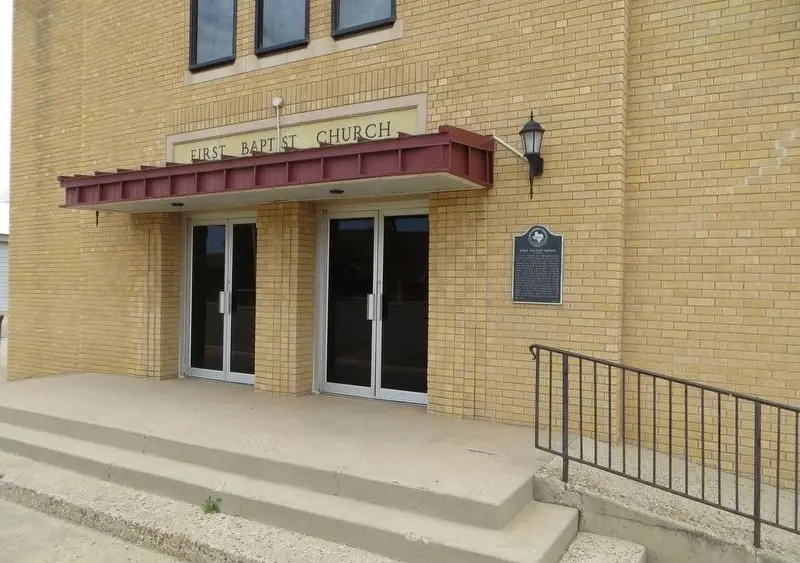
Last week’s article left all with reference to 1 Corinthians 4:14-17 and the warning that Paul gave to the Christians in Corinth, as well as, letting them know that he was sending Timothy to them. The reader is reminded by Paul that he taught the same thing everywhere in every congregation. Today one does not have to gaze far across the landscape of Christianity to see so many different teachers teaching so many different things across the entire scope of the doctrine. This modern religious landscape is so diametrically opposed to our Lord’s plea recorded in John 17:20-23; a plea for oneness, for unity. This great mudding of the water did not occur all at once but rather over the course of all the years since the first disciples were called. Since the opening events recorded in chapters one and two of Acts, those of the religious world have added to, taken from, altered, and mutilated the Gospel of Christ and the doctrines that conform to it.
Let me start with something so basic that we all know it, yet we have forgotten that we know it. When asked, “Where do you go to Church?” I often jokingly reply, “I do not.” This follows with a brief exchange centered around that I am a preacher and therefore must ‘attend’ somewhere. The simple fact is, though, that the ‘Church’ is not a location but rather all those who have answered the gospel call. It is not a place but the people. The loss of this fundamental principle is the root of so much error and is deeper than the surface thought. The deep, honest fact is that the word ‘Church’ does not even exist in the Bible. But, wait, I can read it all over the New Testament…yes, in your English translations as well as its form in many other modern languages. But the fact of the matter stands that in the original language of the text, the word did not exist, and for whatever reason (like many other words), translators simply chose to replace the original word with a different one…even when a suitable word or phrase in the modern language exist which carries the same meaning as the Hebrew, Greek, or Aramaic.
In Matthew 16:18, Jesus is recorded as making the straightforward proclamation, “on this rock I will build My ekklesia.” Ekklesia is a special called out group of people…called out from the agora, the common mass of people. In the broader scope of the Greek language, the word ekklesia was used to refer to the senate, as it was a particular group of citizens called out of the general agora. Thus, what Jesus was proclaiming was that He would be establishing His ekklesia, His particular group of people called from the world at large. A simple application of standard grammar rules also shows that this is in singular usage. Therefore, Jesus is not establishing multiple groups of the people, but simply one single group for which He claims ownership….”My ekklesia.” This is further seen throughout the entirety of the text of the New Testament by the standard inclusion of the definite article attached to ekklesia…as found in our English translations, The Church…indicating a singular one as opposed to many.
Following a plea for unity and peace, Paul refers to the Body in Ephesians 4:4 by stating, “There is one body….” Hopefully, we are all already aware that body and ekklesia (church) are used interchangeably in the New Testament when referring to those who have answered the gospel call. But just in case, take Colossians 1:18 as a clear example; “And He (Christ) is the head of the body, the church (ekklesia), who is the beginning, the firstborn from the dead, that in all things He may have the preeminence.” So, back to Ephesians 4:4, Paul clearly sees that there is only one body, one ekklesia. Christianity’s landscape today is so foreign from this oneness with all its host of denominations, sects, and splinter groups. The scriptures are pretty clear that what Jesus established was a single ekklesia, and an individual is either a part of it, or they are not. This has always been the essence of the restoration plea, to return to the ekklesia of the New Testament, according to the patterns given in the scriptures for every aspect of its existence and function.
The call does not go out to organizations for the lure of money and power that often permeate great religious institutions and will not loosen its grip for those with control to relinquish their worldly power and influence to transform into the ekklesia of our Lord. This was tried and failed with what was labeled in history as the ‘Reformation Movement.’ No, the call goes out to individuals that have a heart inclined to truth and a mind willing to seek it out. To individuals with a willingness to open God’s Holy Word and scrutinize it, asking themselves if the religious group they are affiliated with looks in all ways like the ekklesia the Lord established or if it is built on the traditions of another organization whose creeds and governance is dictated by men and women.
The most important question that demands the most diligent of pursuits is, “Am I a part of the Lord’s ekklesia?” An honest comparison with the scriptures can answer that question…if one is only willing to do so.
Then Jesus said to those who believed Him, “If you abide in My word, you are My disciples indeed. And you shall know the truth, and the truth shall make you free.” (John 8:31-32)
(Carl Hartman is the Minister at Main Street Church of Christ in Lockney)




